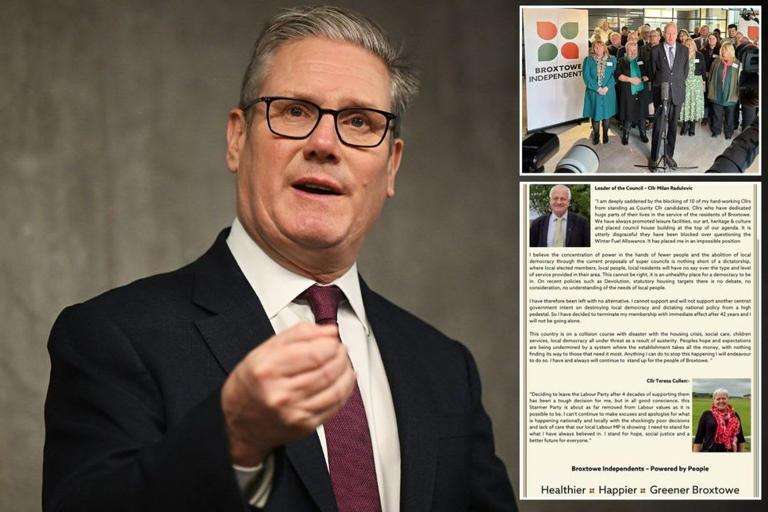The i Paper can reveal that care staff will receive training to perform additional health checks in an effort to reduce burden on the NHS and improve the care of elderly and vulnerable individuals.
Wes Streeting, the health secretary, will unveil ideas on Friday to restructure England's social care system, which has been under increasing pressure in recent years.
He will unveil a new data-sharing program that will allow care facilities to access the medical records of patients who have been released from the hospital.
A large number of patients wind up staying in hospitals due to a lack of appropriate placement in a care facility or at-home care, which is attributed in part to the status of social care and the strains it places on the NHS.
On Monday, Sir Keir Starmer is expected to make a major speech about the Government’s plans for the health service which is one of the five “missions” he has pledged to accomplish before the next general election.
New rules will ensure that staff working in care homes are able to carry out a number of routine medical checks, designed to ensure that residents do not have to see a doctor or nurse as frequently as they do now.
The checks will include blood pressure tests, redressing wounds, managing diabetes through insulin administration and monitoring, adjusting catheters and mental health support.
Now, Britain's workforce is facing a long term decline, driven
Current Time 0:03
/
Duration 2:35
WION
Health Crisis Stalls UK Growth
0
View on Watch
View on Watch
Care providers should be “fully digitised” before the next election, the Government will say, with staff able to access patients’ GP and hospital records quickly in order to ensure they get joined-up care.
The Health Secretary said: “There is a revolution taking place in health and care technology, and this government is reforming social care so disabled and older people benefit from the latest cutting-edge tech.
“By reforming health and care services to work more closely together, patients won’t be forced to repeat themselves over and over again, staff will be equipped to deliver the best possible care, and it will help to free up hospital beds.
“We will also outline national standards for care technology so families, carers, and providers are able to invest in the best available modern technology to support people.”
Carers – both professionals and relatives – will be given access to a new set of national guidance on which technological tools are recommended for various purposes, such as sensors which try and prevent elderly people falling.
Vin Diwakar, the director of transformation at NHS England, said: “Research shows that digitising social care and linking up records enables people to live independently for longer and families to participate in caregiving, as well as releasing staff from time-consuming administrative tasks to free up more time to care.
“This new focus will ensure teams are supported to deliver the best possible care and patients can benefit from the latest innovations, helping them stay healthy for longer so relieving pressure on the NHS.”
Trade unions and care providers have long warned of a workforce crisis in the sector, with more than 100,000 vacancies last year and an increasing dependence on imported labour to fill jobs.
The Government has promised to set what will effectively be a higher minimum wage for social care workers following negotiations taking place this year with unions and employers.
Plans to boost the workforce will need to be effective if the Government wants care workers to take on additional healthcare tasks.








.svg)




_2.jpg)